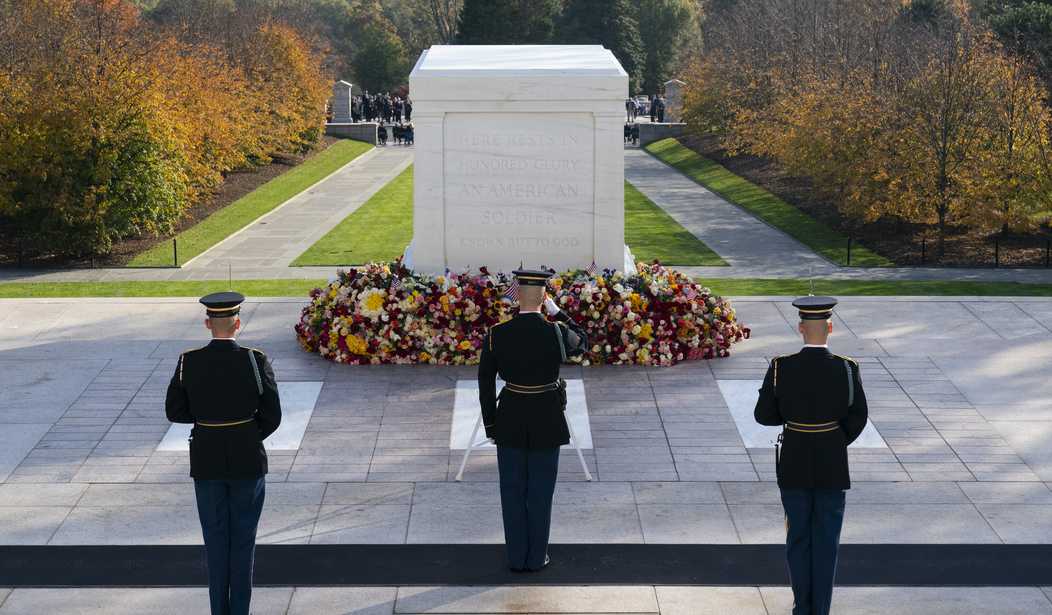Our nation’s veterans face a daunting list of challenges transitioning off active-duty. Many warriors have a difficult time returning to civilian life, finding a job and accessing timely, responsive healthcare from the Veterans Affairs. Without proper care and attention, Post-Traumatic Stress Disorder, Moral Injury, chronic pain from injuries, insomnia, depression and suicidal ideations begin to compound, straining relationships to the breaking point. And tragically, we lose 22 veterans a day to suicide.
These challenges (and many others) are part of my story, and most likely resonate with a veteran you know and love. Something has to give.
So what do veterans really need now? We must work to understand the unique needs of those who gave so much for our country’s blessed freedoms. Veterans and their families have sacrificed so much, missed important life milestones, the birth of their own children, celebrating anniversaries over Facetime or Zoom, graduations and more. They have endured rigorous training, incredibly uncomfortable living conditions, witnessed the hell of combat and lost best friends.
Many veterans feel lost after active-duty. So much of a veteran’s identity is wrapped up in their rank, billet, unit and branch of service. In short, veterans can lose their purpose in life after active-duty and need to find a new purpose–a new mission–for living.
When veterans were serving in the armed forces, they knew who they were fighting. They know they are fighting for freedom for all Americans. But when they exit the military, it’s imperative they discover who they are now fighting for.
I found my purpose during a days-long firefight on a rocky, remote mountainside in Afghanistan. It was there I pleaded with God to spare my life, and there that I vowed to fight to save others and do all I could to put an end to the suicide crisis within our active duty and veteran communities.
We need look no further than the Greatest Generation of veterans, those who fought in WWII, for countless examples of how veterans can become an unstoppable force for good. The many soldiers who rushed the fortified German machine gun nests on the cliffs of Normandy, endured the bitter cold of winter, and survived the Blitzkrieg of the Battle of the Bulge went on to found non-profits, companies, corporations and ministries that shaped America into what we know today.
Recommended
To accomplish their newfound purpose, veterans need a pragmatic plan and the perseverance to endure the challenges ahead. Furthering one’s education, starting a small business, launching a not-for-profit, all require resilience and perseverance.
Resilience is the capacity to bounce back or adjust after facing challenges, while perseverance is the determination to keep moving forward despite obstacles. Those who persevere are often successful because they don't give up, no matter the setbacks.
Veterans need resilience in all realms of life, like physically, psychologically, socially and spiritually.
There are roughly 45,000 organizations that claim to serve veterans. Many of them provide fun, social experiences that provide a weekend’s reprieve from their daily reality. Some address psychological issues and provide mental health counseling. The VA aims to help with medical assistance but due to its bloated bureaucracy, the VA often falls short. In addition many healthcare professionals address the symptoms by prescribing addictive pills, never solving the root cause.
Very few organizations help warriors address the moral injuries of war and neglect the deeper demons that veterans battle.
A retired Air Force senior non-commissioned officer recently shared part of his transition story. He said, “My faith is truly what kept me afloat as I transitioned out. I was on a daily mission, looking for and questioning my purpose for living because my identity was so heavily tied to my career and service. The culture and family component that was prevalent for me in the Air Force was one that felt missing on the other side of the military. By holding onto my faith and continuing my service through my church I found peace, my tribe and eventually my purpose became clear and evident.” This resonated with me.
Along with a purpose, a plan and perseverance, veterans need patience; patience with themselves for their situation. As my Air Force friend shared, “It took me about three solid years to feel like I was finally separated from service.” It’s going to take a while to reintegrate into civilian society. This is not uncommon, most veterans face this challenge.
When I joined the Marine Corps, I became government property. This is everyone who joins the military. You’re told what to wear, where to go, where to sleep, when to eat, what to do, and you are required to obey (lawful) orders.
Whether service members leave active-duty after one term of service or retire after 20-plus years, life is wide open to possibilities, choices and opportunities. The vastness of that uncharted course can be a culture shock for many veterans, testing their core values and coping mechanisms. When I transitioned, it was in the midst of the pandemic. Many of us transitioned at arguably the worst time in history.
Veterans need help, period. If we as a nation are truly grateful this Veterans Day, it’s time to move beyond words and start putting actions behind them. Let’s work to give veterans what they really need.
Dr. Damon Friedman, a decorated combat veteran who served in Iraq and Afghanistan, retired from the Air Force as a lieutenant colonel in special operations. He is the recipient of the Spirit of Hope Award from the Secretary of Defense, and founder of SOF Missions, which works with veterans with PTSD.

























Join the conversation as a VIP Member